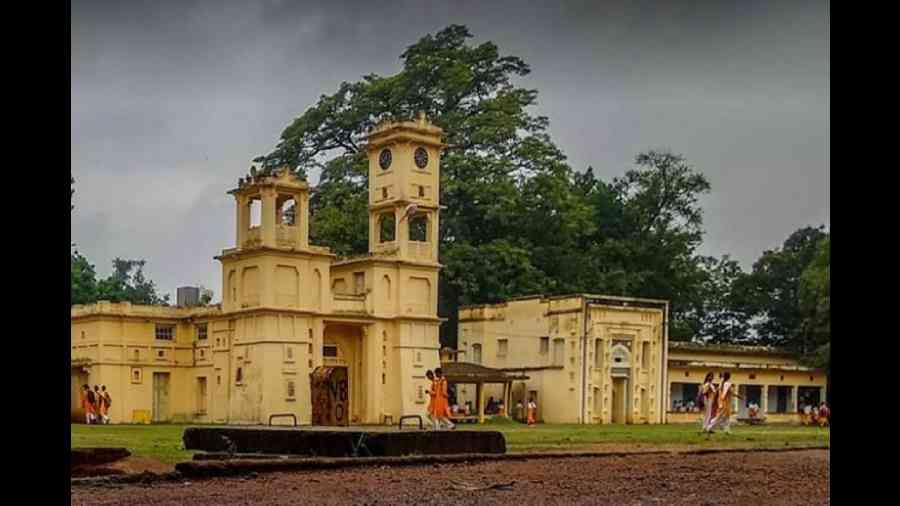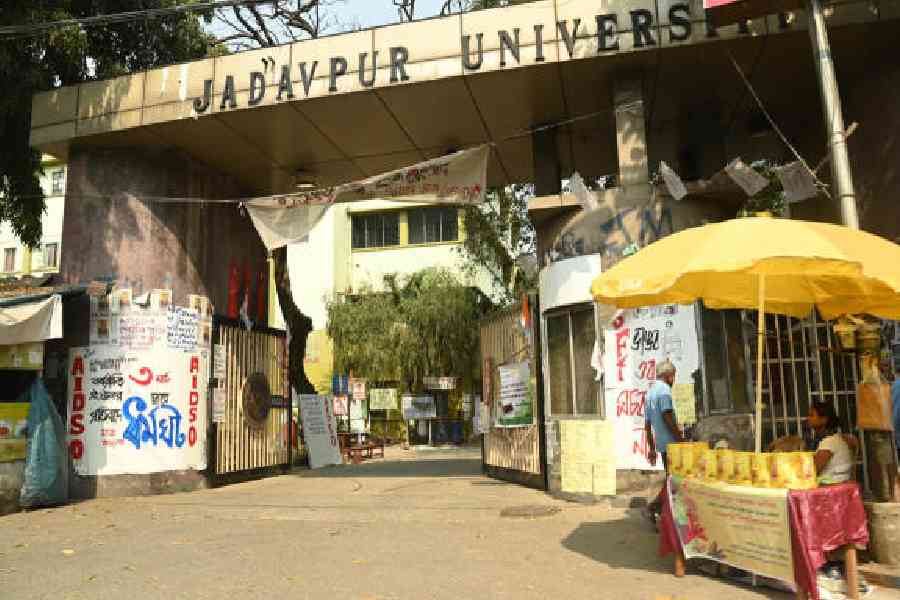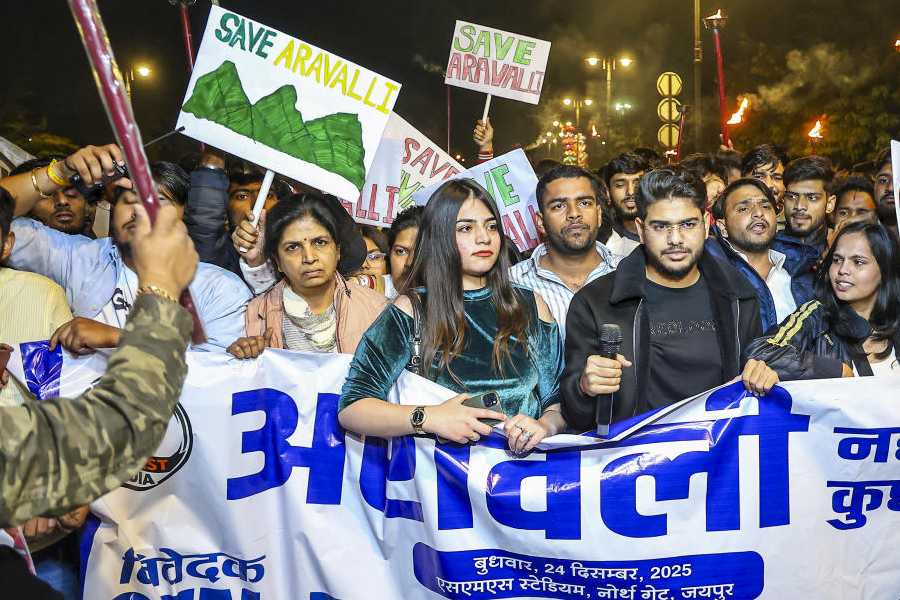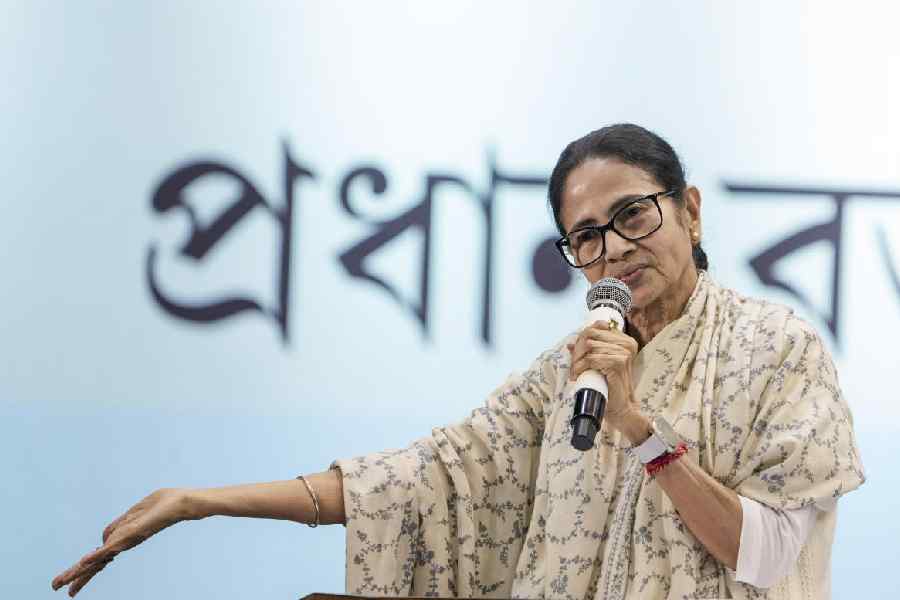If ever the idea of an institution could be captured and carried forward by a single individual, the life and work of Amartya Sen have truly embodied the ethos of Santiniketan, the university town with Visva-Bharati University at its centre. Sen, true to Tagore’s vision of Santiniketan, is an intellectual at home in the world. His ideas, drawn from his Indian experiences, have enriched global economic thought and moral philosophy tremendously. But Visva-Bharati today is a changed institution — instead of celebrating Sen as one of its exemplars, it has initiated eviction proceedings against him.
Santiniketan always ran the risk of morphing into a pale shadow of itself over time. Its institutions had always been too closely intertwined with the personality of Tagore and his immediate compatriots. This meant that after the passage of the founding generation, some pockets of brilliance apart, it fell prey to the abundance of mediocrity. Worse still, when Visva-Bharati became a Central university in independent India, its freewheeling culture of creativity and license gave way to the stodginess of bureaucracy and the entrails of procedure. Its vision — of producing an authentic Indian university, a locally rooted alternative to Anglo-American models — slowly but steadily became a caricature of itself.
By the turn of the century, with much of the quality or substance from its founding generation gone, the university had become part empty vessel, part museum. Both these parts extolled its past glories relentlessly without carrying forward that legacy in any meaningful way. With the emergence of the Bharatiya Janata Party as a formidable political force nationally, this already changed Visva-Bharati morphed fundamentally into a different kind of entity — like an antique piece of art acquired by a nouveau riche family, it was showcased with the precise intention of underlining the fact that it had now been acquired. Tagore and his expansive vision was a shibboleth that was dutifully parroted on special occasions like convocation day, only to be systematically denuded every other day of the year. Unfortunately, there was no alternative vision presented of what a modern Visva-Bharati should be like. It was only about dismantling what had come before.
This is precisely why a globally successful, outspoken and cosmopolitan Amartya Sen became a natural target for this new avatar of Visva-Bharati. The current eviction proceedings are over 0.13 acres of land that the university claims Sen has illegally occupied in its campus. The university does not deny that Sen is the rightful occupant of 1.25 acres that adjoin these 13 decimals. But over this sliver of land that has remained part of Sen’s ancestral house, Pratichi, for generations, the university has deemed it fit to read the riot act to him. Like the Kaurava prince who famously proclaimed that he would not part with even a needle-point worth of land without a war, Visva-Bharati too has decided to go to war with Sen on a triviality. Caught up in the moment, maybe it has forgotten its Mahabharata lessons.
As a question of law, the matter is fairly simple — Sen needs to show documentation on how he acquired the additional 13 decimals of land. Evidence such as the land record that shows him as the rightful occupant of these decimals, handed over by the chief minister to him earlier this year, would help, but would not be conclusive. Evidence of transfer of some rights, either in the form of a lease, sale or other deed, will be necessary to conclusively demonstrate his rightful occupation over the disputed piece of land. Time will tell whether he is able to marshal the evidence. But this is not the point — the fact that Sen is being made to go through this process itself is a perversion of the rule of law and basic courtesy.
To function effectively, the law requires a combination of fidelity to rules and a commonsensical attitude in applying them. There is no doubt that no one should illegally occupy public land, whether it is Amartya Sen or a dubious builder looking to make a quick buck. But the law also requires common sense in its application. It is nobody’s case (at least not yet) that Sen is a stereotypical encroacher. It is not only documented but also widely known that his grandfather was the vice-chancellor of the university and his father a professor, with whom Tagore himself had entered into a 99-year lease deed on behalf of Visva-Bharati. Even if it is assumed that there is an irregularity in some part of Sen’s possession, common sense and basic courtesy demand a civil conversation to ensure the return of land or a mutually agreeable settlement. The law cannot be enforced by automatons but requires sensible application by sensible minds.
But the fact that the vice-chancellor of Visva-Bharati has made the removal of illegal encroachers from its land his primary vision for the revival of the university makes such a possibility remote. Sadly, it also speaks volumes of the university’s fall from grace. There is no doubt that the university administration should rightfully take the land that is its own. But does the officiating head of a premier university concern himself with such routine administrative matters? This is especially the case when the university is in intellectual free-fall, running essentially on borrowed time. There can only be one reason why this matter is such a priority for the university — it is not a mere question of a small sliver of land. It is a power play to underline that the era of Tagore’s cosmopolitanism and Sen’s erudition is now over in Santiniketan. It is now time for the rule of mechanical law and administrative efficiency, the intellectual might of Visva-Bharati be damned. It has chosen Sen, the most conspicuous and visible symbol of a gentler, more thoughtful and global Santiniketan, to make its point.
Visva-Bharati’s claims that it is only enforcing the original lease deed for the plot have some shades of one of Rabindranath Tagore’s most poignant poems. Its enforcers would do well to read “Dui Bigha Jomi”, if they haven’t already — the tragic tale of a scheming landowner filing a case to evict the rightful occupant from 1.2 acres of land. But in today’s Visva-Bharati, it would be no surprise if Tagore isn’t read at all.
Arghya Sengupta is Research Director, Vidhi Centre for Legal Policy. Views are personal











